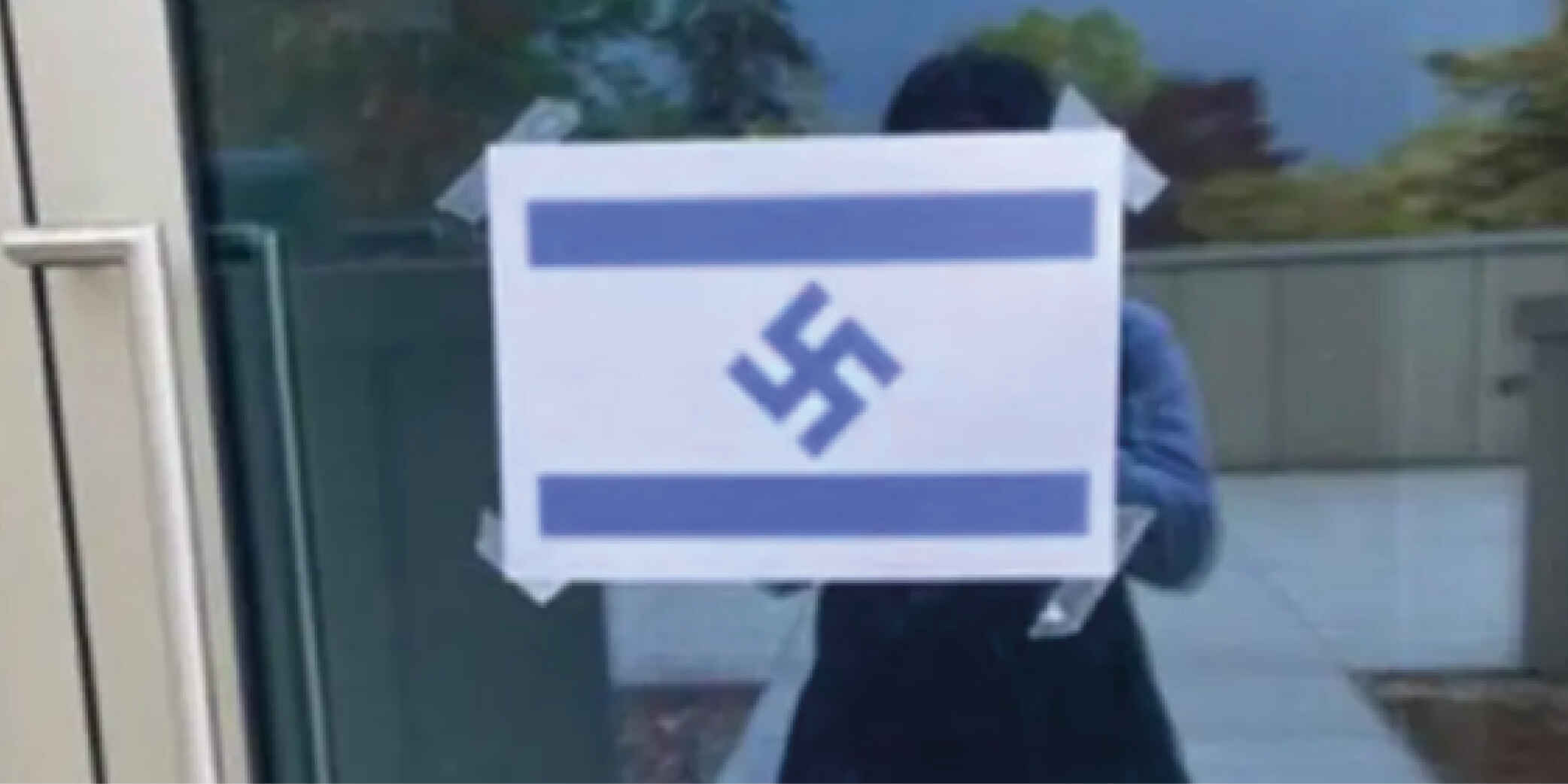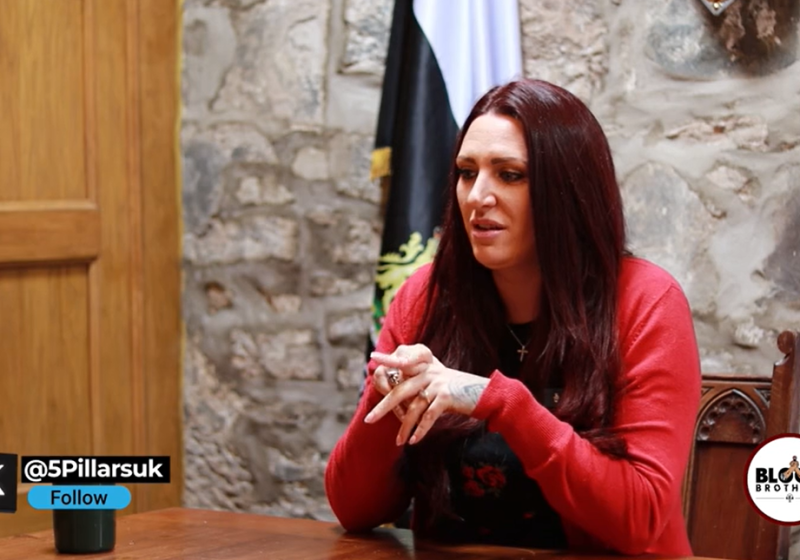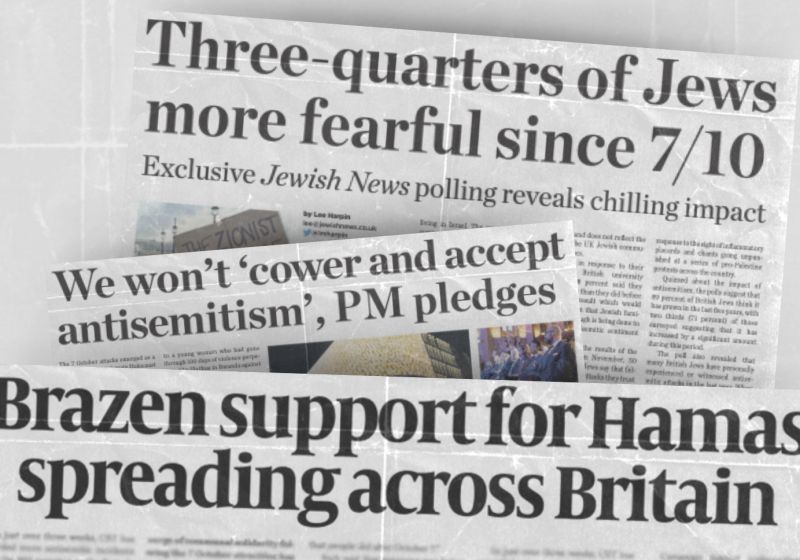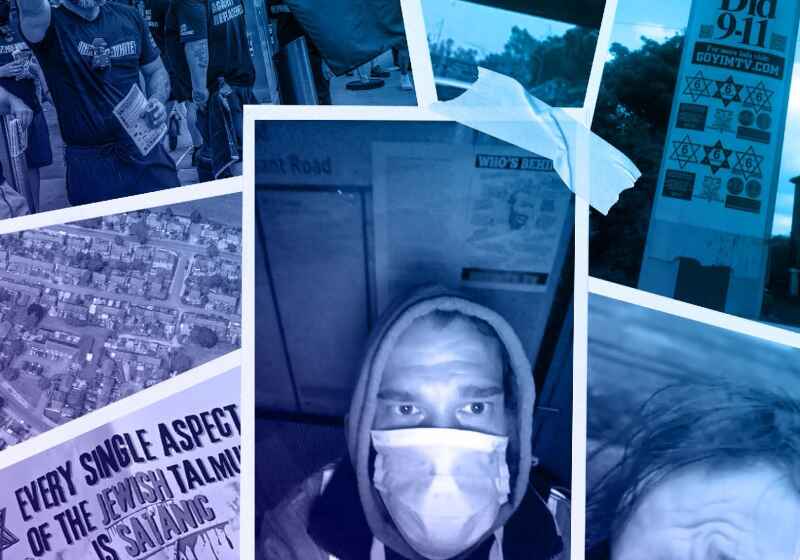CST Blog
CST report shows 22% increase in campus antisemitism
19 January 2023


Today CST publishes a new report, Campus Antisemitism in Britain 2020-2022, that shows a 22% increase in university-related antisemitic hate incidents reported to CST over the past two academic years. This is the second investigation of its kind by CST looking exclusively at the experiences of Jewish students, as well as staff and campus organisations around the country.
CST’s new report reveals 150 university related antisemitic incidents were reported to CST in the last two academic years across 30 towns and cities in the UK.
Jewish life on campus is vibrant and there are a wealth of opportunities available that contribute to the overwhelmingly positive experiences of Jewish students at university. Most Jewish students will not encounter any antisemitism during their studies, but anti-Jewish hatred can still present a significant challenge for Jewish staff and students.
In 2020/2021, CST recorded 95 university related antisemitic incidents; the highest total recorded for a single academic year. Fifty-five of these incidents took place in a single month, May 2021, when there was a significant escalation of conflict in Israel and Gaza. This was a period when national levels of anti-Jewish hate crimes increased, and university campuses were disproportionally affected. For Jewish staff and students, online spaces were especially hostile during this time with three quarters of the incidents reported in May 2021 occurring on social media platforms or messaging apps. In times of heightened tensions such as this, universities are urged to consider the impact on Jewish staff and students and show an increased level of support.
The 150 incidents reported to CST during the past two academic years included seven threats, three of which were death threats sent to Jewish students, and three physical assaults. The remaining 140 incidents were in the category of Abusive Behaviour, which includes verbal abuse, antisemitic graffiti on non-Jewish property, and online or offline written abuse. Eighty-two incidents took place online, 47 incidents occurred on campus, and 21 took place off campus.
This report shows the challenges faced by students when universities, who have a duty of care to protect all students at university, do not always provide robust support to Jewish students or staff. This is sometimes seen in how some academic institutions handle complaints of antisemitism. In some cases, CST found that investigations into complaints of antisemitism have been marred by slow responses, a breakdown in communication, a lack of impartiality or objectivity from investigating officers, and a failure to use the International Holocaust Remembrance Alliance (IHRA) working definition of antisemitism in an appropriate way.
CST’s recommendations for universities:
- Maintain a fair, independent and impartial complaints process that consults external advisors with specialist expertise in the type of discrimination or bigotry being alleged
- Offer a timely response to students and update them on any progress made, delays that may be inavoidable and when they can expect an outcome to the investigation
- Allow for anonymity for students in the reporting of a hate crime and the involvement of third party representation
- Ensure that adoption of the IHRA definition of antisemitism is accompanied by training for staff who will be investigating the complaint so that they know how to use the definition, and have a wider understanding of the nature, language and impact of antisemitism on British campuses
CST works alongside the Union of Jewish Students (UJS) and other campus-based organisations to support students, academics and others who experience antisemitism in a higher education setting. CST’s campus team gives advice to Jewish students and Jewish societies on campus regarding how to organise events safely. CST also works with different organisations to teach students about topics relating to antisemitism and extremism on campus. It is hoped, as with all CST’s work, that this will contribute to the building of a safer and more inclusive environment for Jewish students and staff.
In response to CST’s new report, CST Chief Executive Mark Gardner said:
“Antisemitism at our universities has been a running sore for decades and these new findings show that far too many Jewish students suffer hatred and bias. This study also reinforces last week’s National Union of Students’ own report into antisemitism, including the link between anti-Israel hatred and racist treatment of British Jews. Students’ Unions and university authorities need to better support their Jewish students, taking concerns seriously and acting against antisemitism, whether it comes from students or academics.”
HM Government’s Independent Adviser on Antisemitism, Lord Mann, said:
“Antisemitism on campus has long been a concern for parents and students, and the reported rise in university-related antisemitic incidents over the past few years is both worrying and unacceptable. It is imperative that more is done to protect Jewish students and staff from the scourge of antisemitism and both the Community Security Trust and the Union of Jewish Students are at the forefront of this work. Together with the leadership of the All-Party Parliamentary Group Against Antisemitism, I have recently set up a Taskforce to hold hearings and focus groups at a wide and diverse number of universities across the UK, to meet with student unions’ representatives, Jewish students and staff. The taskforce will examine the Jewish experience at Higher Education institutions and provide recommendations about what measures could be implemented to help tackle antisemitism and support the Jewish community within the sector. All Jewish students have a right to be themselves on campus without any negative impact on their university experience.”
Union of Jewish Students President Joel Rosen said:
“Jewish students living away from home for the first time have the right to be who they are and to feel safe where they live and study. These incidents have a detrimental impact on the community, leading some to hide their identity and disengage from parts of university life. Jewish students are resilient and won’t let themselves be defined by the prejudice of others. In spite of the odds, Jewish life on campus continues. Our answer to those who would uproot our thriving student communities is to ensure that they continue to grow and flourish.”
Read the full report on Campus Antisemitism in Britain 2020-2022.


